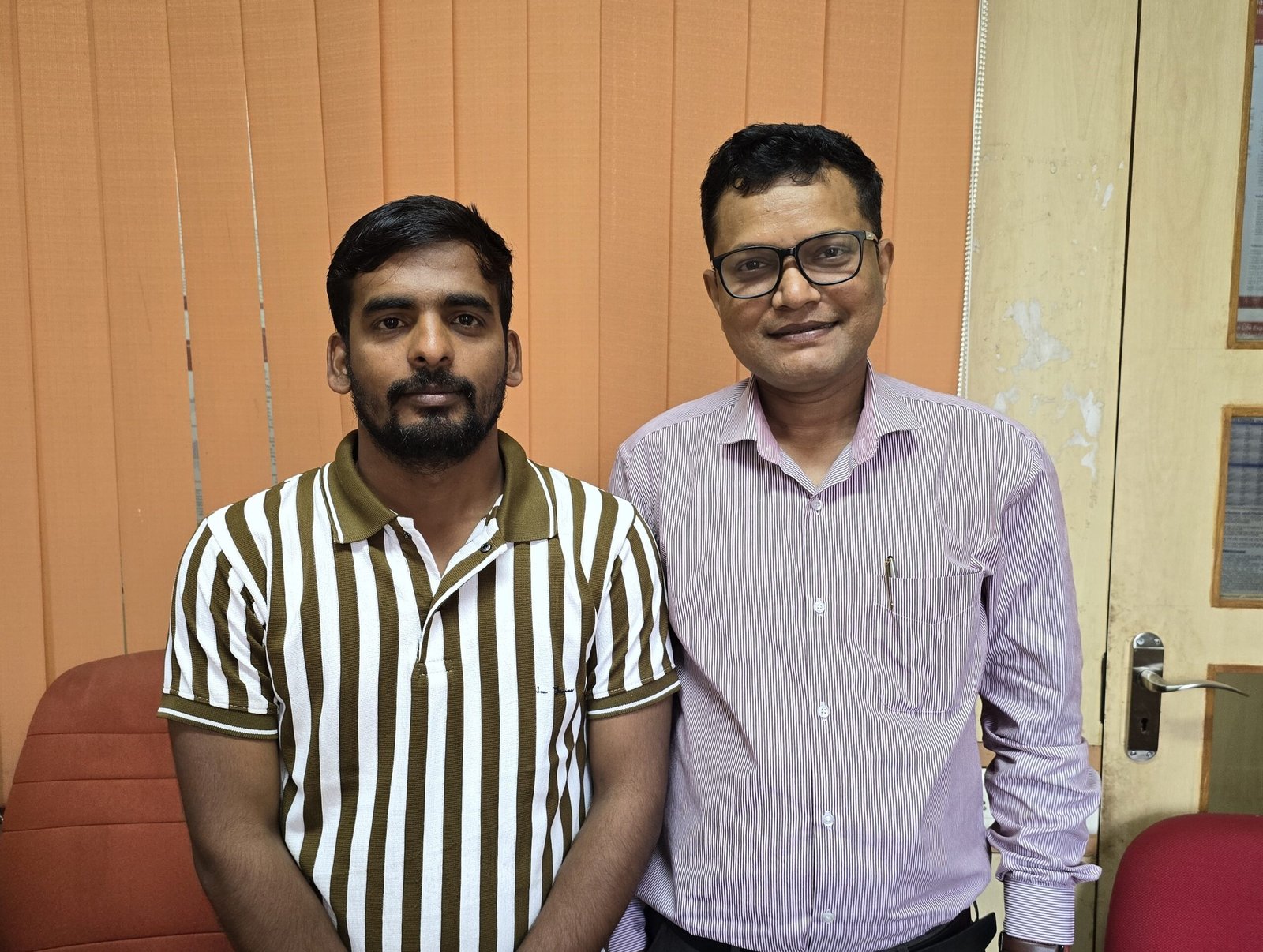Friday, 20 February 2026

Researchers have studied data from 27 developing countries on how digital tools and renewable energy affect agriculture
Researchers from the National Institute of Technology (NIT) Rourkela, in collaboration with Azerbaijan State University of Economics (Turkey), have presented insights on how digital tools and renewable energy can transform agricultural productivity and sustainability in developing countries. The research team has conducted the study covering 27 developing nations, including India, revealing how internet use, mobile connectivity, renewable energy, agricultural land, and fertiliser consumption collectively shape the nature of food production in a rapidly changing world.
The findings of this research have been published in the prestigious Technology Analysis & Strategic Management journal, in a paper co-authored by Prof. Narayan Sethi, Professor, Dept. of Humanities and Social Sciences, along with his research scholar Litu Sethi, in collaboration with Dr. Ugur Korkut Pata and Dr. Selin Karlilar Pata from Azerbaijan State University of Economics (Turkey).
In the current technology-driven environment, no aspect of progress is untouched by digital technologies. From how we communicate and work to how we produce food and meet our energy needs, everything is experiencing a revolution driven by the internet and renewable energy.
The internet in agriculture has changed how we produce, market, and consume food. Farmers can now check market rates before selling their produce, compare fertiliser prices online, and learn sustainable farming techniques. In many rural communities, a simple mobile phone can bridge the gap between farmers and markets, improving transparency, bargaining power, and overall efficiency.
Along with emerging technological trends, the growing shift toward renewable energy is also changing agricultural practices. Solar-powered irrigation is potentially helping smallholder farmers overcome the challenge of irregular electricity supply.
Speaking about how the internet and renewable energy are influencing agriculture, Prof. Narayan Sethi, Professor, Dept. of Humanities and Social Sciences, NIT Rourkela, said, “The agricultural sector remains a major source of employment and income in developing countries like India. However, the agricultural sector is also prone to varying effects of climate change. Thus, the government can prioritise training programs for encouraging sustainable farming through multiple cropping systems, irrigation techniques, and the appropriate use of fertilisers.
Additionally, digital literacy, subsidised or zero-cost credit facilities, and financial inclusion should be prioritised to support small- and medium-sized farm holders for higher agricultural productivity from technological advancement and renewable energy use. With the changing global scenario, higher investments supporting ICT inclusion, renewable energy use, and sustainable land use practices are crucial for strengthening the agri-food sector to enhance food security, economic growth, and environmental benefits in developing countries.”
The research team used advanced econometric methods to analyse agriculture-related data from 27 developing countries, spanning 2000 to 2021. These include India, Argentina, China, Pakistan, Ghana, Malaysia, Togo, Bangladesh, Indonesia, Nigeria, Thailand, Bolivia, Nicaragua, Tunisia, Botswana, Jordan, Turkey, Sri Lanka, Panama, Tanzania, Costa Rica, Mexico, Philippines, Kenya, Dominican Republic, Mozambique, and El Salvador.
The researchers found that internet use, mobile phones, and renewable energy each individually boost agricultural productivity. However, when used together, their combined effect can sometimes be detrimental. This is mainly due to challenges such as unreliable electricity, limited internet connectivity, and low digital literacy in rural areas.
Speaking about research insights, Litu Sethi, Research Scholar, NIT Rourkela, said, “Agriculture is the backbone of developing countries, accounting for more than 50 per cent of the workforce engaged in agricultural activity directly or indirectly. Sustainable agricultural practices can create win-win situations by enhancing socio-economic conditions and positively contributing to the environment.
Governments in developing countries should invest in ICT infrastructure to expand internet access for rural farmers and promote digital literacy through training programs. Policies that provide free or subsidised mobile services can help smallholder farmers access vital information on markets, weather, and soil health. Also, policies encouraging greater adoption of renewable energy for irrigation and cold storage, supported by collaboration among government, renewable energy firms, and telecom providers, need to be prioritised. Integrating renewable energy with digital tools is key to achieving sustainable agricultural productivity.”
Through training opportunities, farmers can be taught to use smartphones for more than just talking and texting. For example, farmers can receive weather alerts, participate in online markets, and use precision agriculture tools. Renewable energy policies, like subsidising solar irrigation systems, can resolve energy shortages and increase resilience to climate change.
The study aligns closely with India’s national missions, such as the Digital Agriculture Mission and the PM-KUSUM Scheme, which aim to promote clean energy and technology-driven farming.
In the Indian context, as the country faces the challenge of enhancing agriculture to meet the needs of 1.7 billion people by 2050 while fighting climate change, this study provides evidence that bridging the digital divide and promoting renewable energy adoption can ensure agricultural sustainability, which is essential for enhancing food security while abating climate change effects.